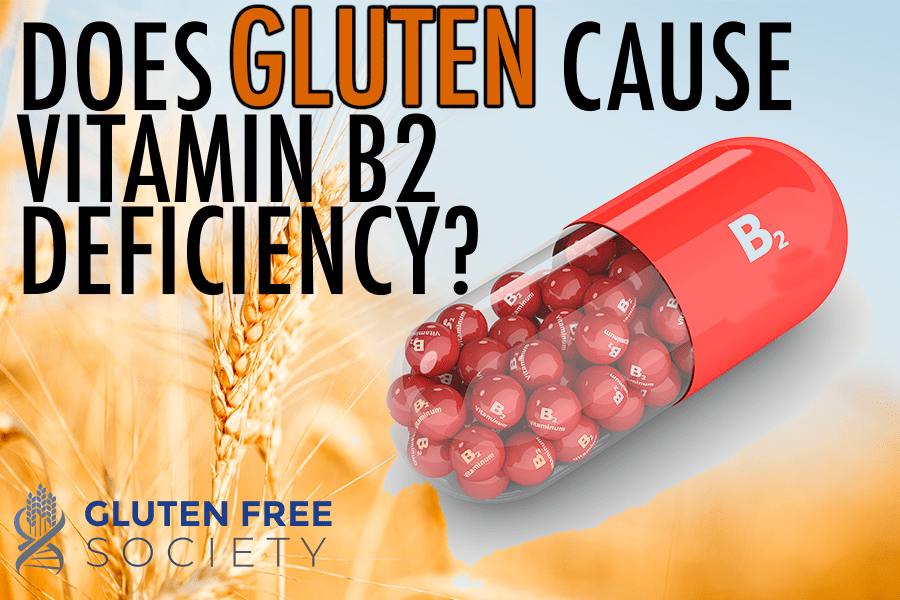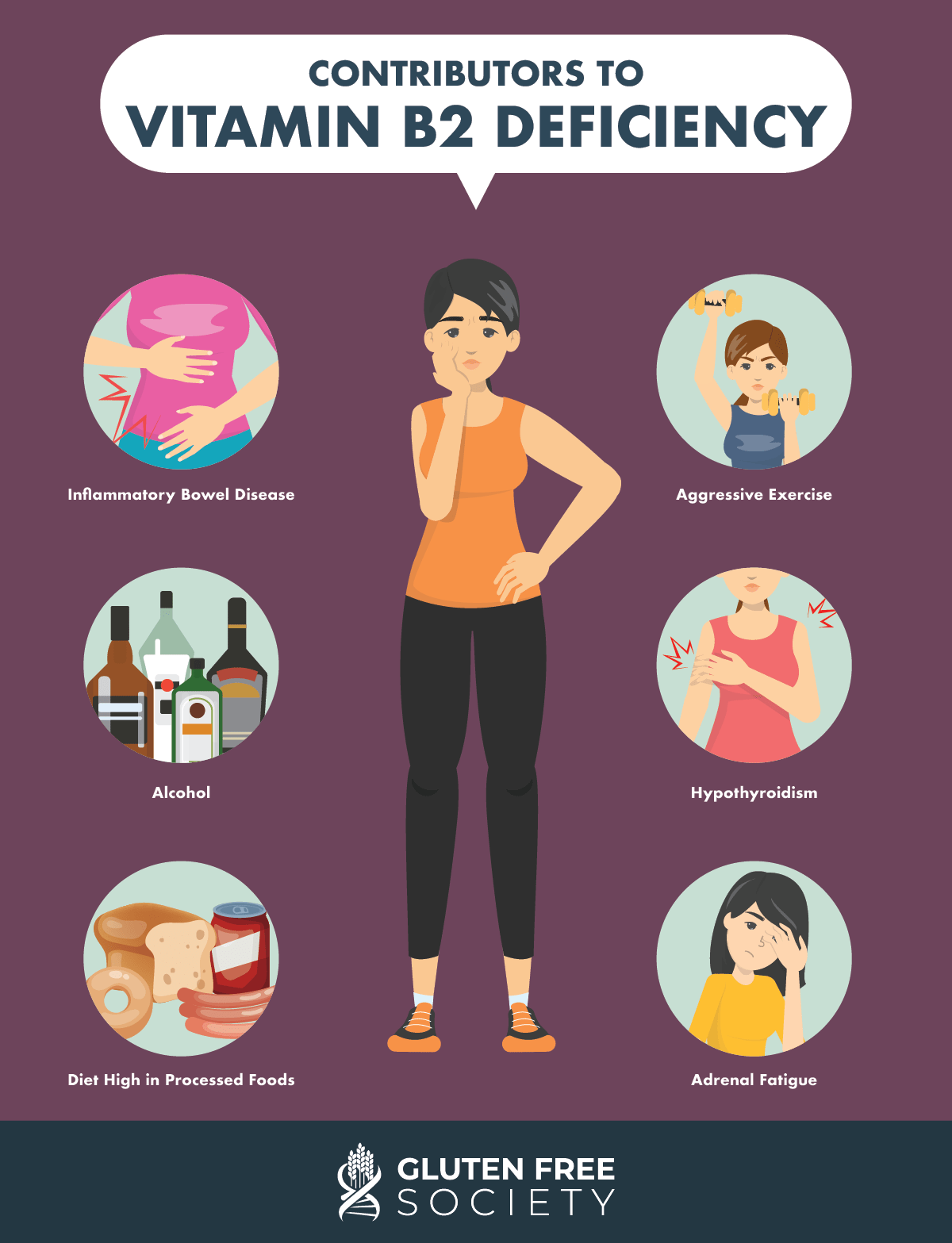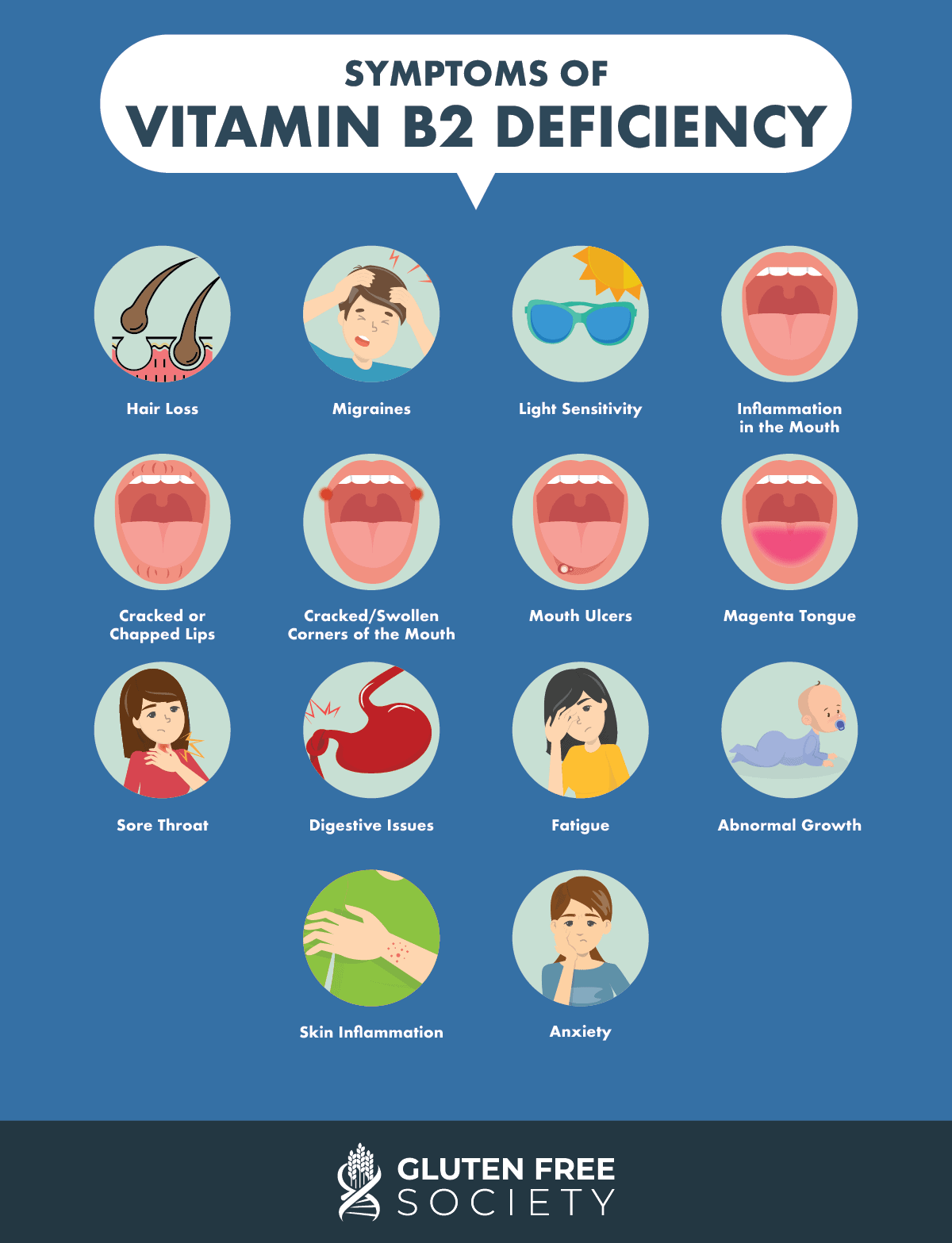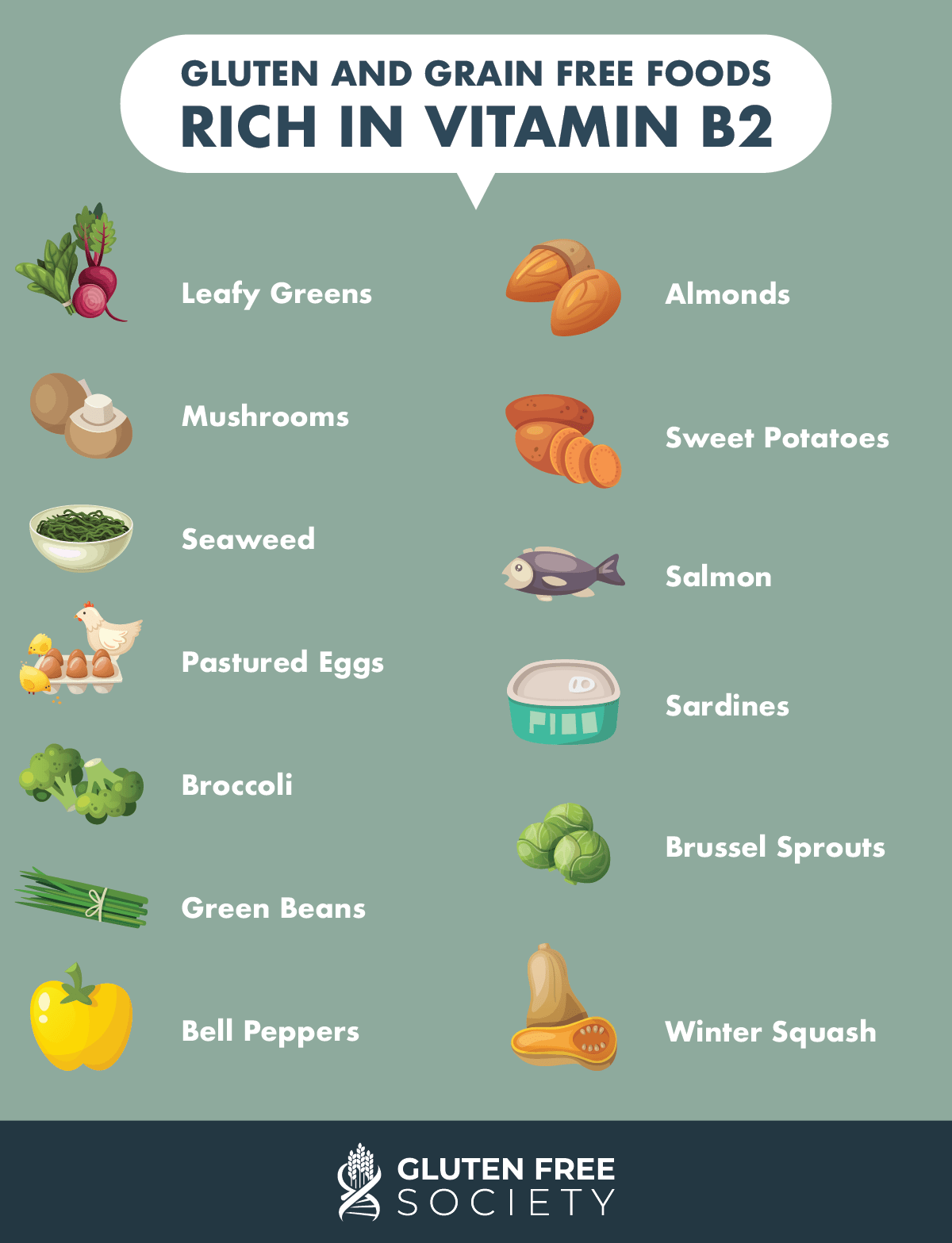new to the gluten free journey?
new to the gluten free journey?

Contents
Toggle Can Gluten Cause Vitamin B2 Deficiency?
Can Gluten Cause Vitamin B2 Deficiency? Vitamin B2 deficiency is sometimes referred to as ariboflavinosis. Symptoms associated with vitamin B2 deficiency include:
Vitamin B2 deficiency is sometimes referred to as ariboflavinosis. Symptoms associated with vitamin B2 deficiency include:


 You won’t find vitamin B2 in processed foods. Because they mostly contain grains, sugar, and food additives. And these ingredients don’t contain vitamin B2. So you’ll need to rely on riboflavin-rich whole foods. Below are some of my favorites:
You won’t find vitamin B2 in processed foods. Because they mostly contain grains, sugar, and food additives. And these ingredients don’t contain vitamin B2. So you’ll need to rely on riboflavin-rich whole foods. Below are some of my favorites:
Written and medically reviewed by Dr. Peter Osborne. Updated on January 6, 2021
Stay up-to-date with the latest articles, tips, recipes and more.

*These statements have not been evaluated by the Food and Drug Administration. This product is not intended to diagnose, treat, cure or prevent any disease.
If you are pregnant, nursing, taking medication, or have a medical condition, consult your physician before using this product.
The entire contents of this website are based upon the opinions of Peter Osborne, unless otherwise noted. Individual articles are based upon the opinions of the respective author, who retains copyright as marked. The information on this website is not intended to replace a one-on-one relationship with a qualified health care professional and is not intended as medical advice. It is intended as a sharing of knowledge and information from the research and experience of Peter Osborne and his community. Peter Osborne encourages you to make your own health care decisions based upon your research and in partnership with a qualified health care professional.
One Response
This is the best article on vitamin B2 so far.